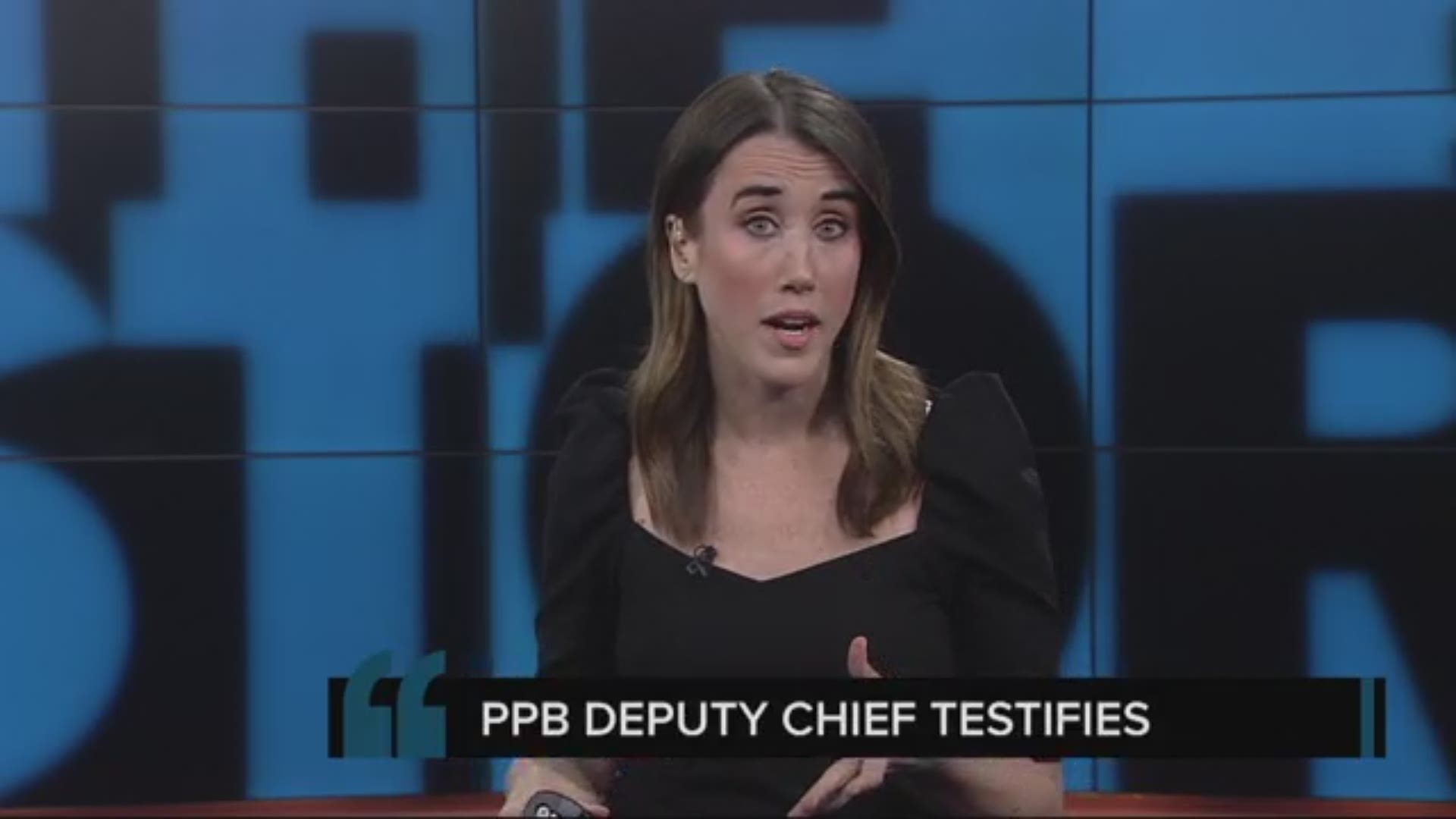SALEM, Ore. — Portland Police Chief Chuck Lovell was scheduled to appear in front of Oregon lawmakers last week to discuss his police force's use of force during the weeks-long protests unfolding in downtown Portland.
However, Chief Lovell was pulled away from that meeting instead to discuss the presence of federal officers on downtown streets, alongside Mayor Ted Wheeler.
In his place, Deputy Portland Police Chief Chris Davis took the stand.
"I can tell you in all of my experience I have never seen anything like what we have seen on the streets of Portland in the last six weeks," Deputy Chief Chris Davis said.
When he was asked about the federal officers who have been sent from the Department of Homeland Security, Davis said the PPB doesn't have authority over them.
"They're not under our control. My preference would be to not have them outside their buildings unless it's a life/safety kind of an issue, and I would prefer to police the outside of their buildings and all of the others downtown with local and state resources," Davis said. "The problem right now is our resources are stretched so thin. If the federal authorities believe [protesters] have a certain threat to their facilities, when they get to the point when they decide they're going to take action, I don't have the legal authority to prevent them from taking action. I would just like to make it unnecessary by having enough resources down there for us to just deal with everything outside the buildings by our standards."
Sen. Lew Frederick (D-Portland) asked Davis if it's possible that some of the people protesting know what "triggers" police officers to respond in a certain way.
"The people organizing the violence every night, I think that is probably their goal," Davis said. "I think that's what makes these situations probably the hardest situation in policing to manage because you have to deal with people who are just standing there. And I think that is an intentional tactic to get people to just stand in front of the group so others can stand behind the group and start throwing things at the police and try to initiate a response."
Another lawmaker asked Deputy Chief Davis if the thinks police are escalating tensions just by being there. He said that could definitely happen, but added police officers have no choice but to get involved.
"For a number of nights actually as this has gone on, we've tried to keep our police officers just completely out of sight, in the Justice Center, and not send them outside unless it got so dangerous in terms of fires being lit and threats to safety that we had no choice. And unfortunately most of those nights the group chose to escalate things to the point where we had to go out and intervene," Davis said.
Oregon lawmakers passed several bills aimed at reforming police departments in the state in a short session earlier this summer:
- House Bill 4201, originally intended to turn police shooting investigations over to the Oregon Department of Justice, establishes a Joint Committee on Transparent Policing and Use of Force Reform. That committee, made up of lawmakers and community members, is expected to make recommendations for new legislation by the end of the year.
- House Bill 4203 bans the use of chokeholds, except when an officer decides deadly force is warranted. It’s worth noting, multiple law enforcement agencies, including the Portland Police Bureau, have already banned the tactic.
- House Bill 4205 establishes a “duty to intervene," requiring officers take action to prevent or report misconduct by a fellow officer.
- House Bill 4207 requires the state to maintain public records on police discipline. Agencies must then check that database before hiring an officer.
- House Bill 4208 bans tear gas, unless police declare a riot and announce they intend to use it, giving people time to disperse.
- Senate Bill 1604 makes it more difficult for arbitrators to overturn police disciplinary findings.

